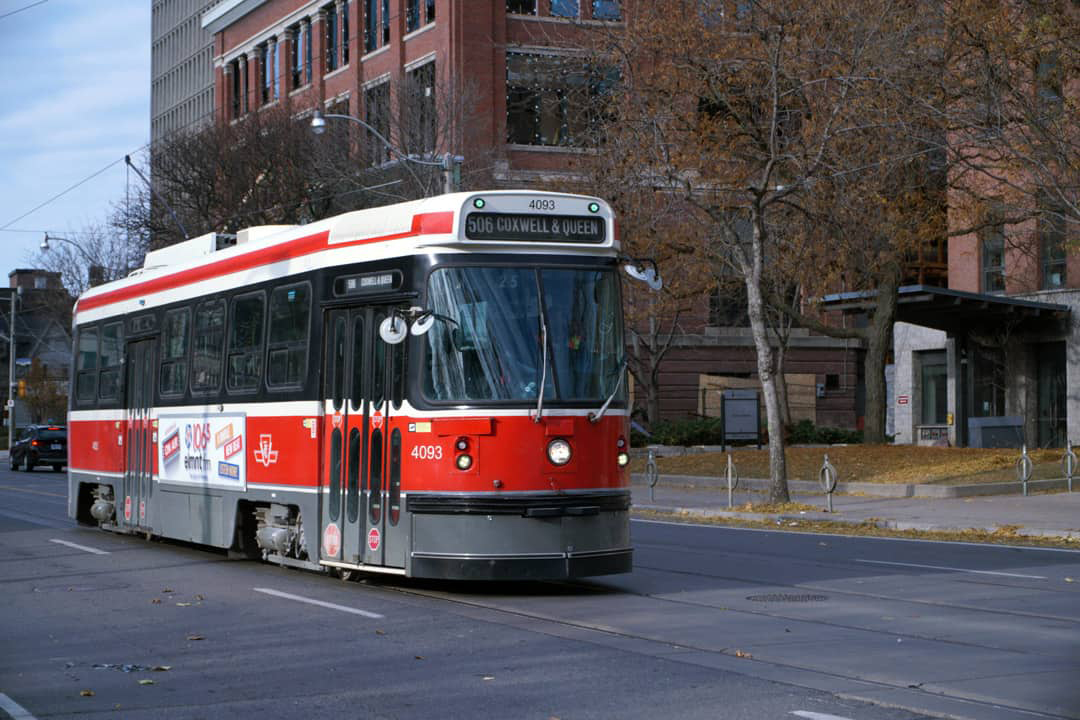On the morning of June 29, members of the TTCRiders, a grassroots organization of TTC users who advocate for better public transit access for Torontonians, stood in front of Spadina Station to promote their report, which demands lower fares and service improvement.
The report, titled Transform the TTC!, was created by compiling data that the TTCRiders collected by holding focus groups with over 650 TTC users from February to May this year. These focus groups were held in English, Tamil, Marathi, Hindi, Gujarati, Mandarin, and one event provided an American Sign Language interpretation. More than 50 people contributed to the creation of the report, which found that top concerns for TTC users were “unaffordable fares” and “infrequent, unreliable, and crowded buses.”
Making the voices of TTC users heard
During the Spadina gathering, four speakers spoke about their personal experiences with the TTC. One of the speakers said that affordable fares are necessary for people to be able to “move freely in the city without experiencing violence and discrimination.”
“We need to invest in public transit now, or transit riders will take years and years to return,” another speaker added. A speaker commented that they felt like they were being squished into a tuna can when they used the TTC. The report found that overcrowding and lack of face covering enforcement on the TTC are major concerns during the COVID-19 pandemic.
TTC policies’ impact on U of T students
The Varsity spoke with Sujata Thapa, a U of T graduate student studying urban planning and a member of the TTCRiders, about how inaccessible public transportation affects university students.
Thapa told The Varsity that the U of T student body is a highly mobile population because commuting is necessary for educational and career success. “Students want to participate in the cultural, social and political life of the city, and making the TTC affordable to students and youth ensures that they can participate fully,” said Thapa.
Thapa explained that many students live in cities such as Brampton, Mississauga, Scarborough, Hamilton, St. Catherines, and Oakville, and they don’t have a choice except commuting to their respective campuses. In an email to The Varsity, Thapa wrote about the additional costs that commuter students incur. Commuter students from all three U of T campuses often have to use two transit systems to reach their school and work locations, which translates to significant travel cost and lengthy commutes. “We are calling [on the] TTC [to adopt a] fare integration program so that there is free transfer between GO and TTC,” she wrote.
Thapa said that students who have recently graduated from high school and are starting their undergraduate degree do not have an income that can support them independently. Therefore, paying the TTC fare creates an economic burden for many students. Better service on buses also matters to students who depend on buses to get to class on time.
“Many students, who depend on the TTC, do not feel comfortable taking these overcrowded buses. When students return in September, we need safer, more reliable and frequent service,” said Thapa.
Moreover, Thapa highlighted the disproportionate fare policing of visibly minoritized groups. “Youth, especially racialized youth, report being targeted by fare enforcement more than other youth. UofT has a significant number of students who are indigenous, black and people of color. [Racial] targeting has to stop,” she wrote.
Volunteer opportunities with the TTCRiders
Students can support the TTCRiders by volunteering for the organization. They are currently hosting a big campaign and canvassing across different Toronto subway stations to raise awareness about their report and to push Toronto Mayor John Tory to invest in public transit.
Thapa noted that those who cannot physically campaign can be a part of the social media campaign. Remote volunteers can help take interviews or assist in designing flyers. “We are always in need of volunteers,” she said.


